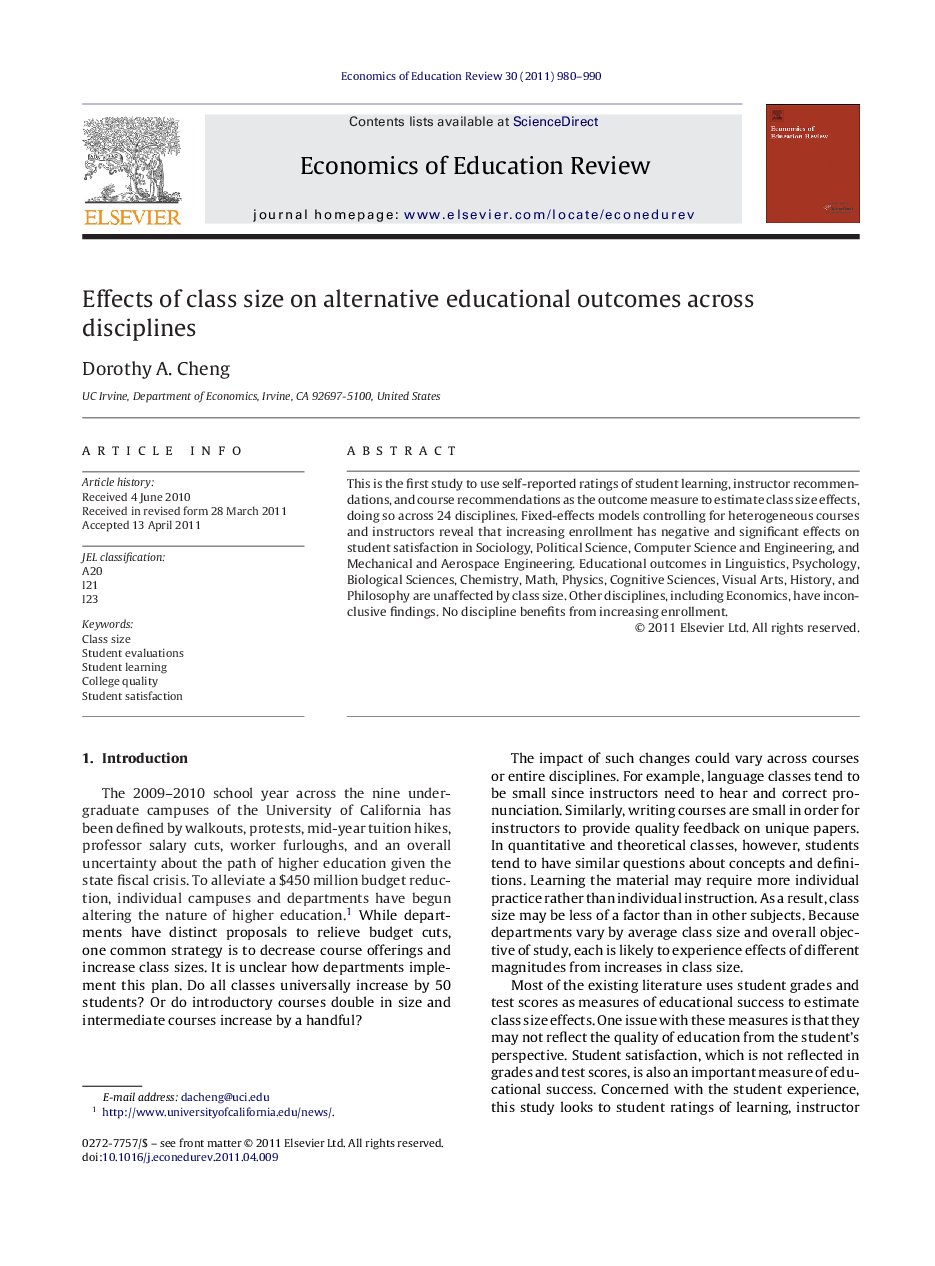| کد مقاله | کد نشریه | سال انتشار | مقاله انگلیسی | نسخه تمام متن |
|---|---|---|---|---|
| 354694 | 1434839 | 2011 | 11 صفحه PDF | دانلود رایگان |

This is the first study to use self-reported ratings of student learning, instructor recommendations, and course recommendations as the outcome measure to estimate class size effects, doing so across 24 disciplines. Fixed-effects models controlling for heterogeneous courses and instructors reveal that increasing enrollment has negative and significant effects on student satisfaction in Sociology, Political Science, Computer Science and Engineering, and Mechanical and Aerospace Engineering. Educational outcomes in Linguistics, Psychology, Biological Sciences, Chemistry, Math, Physics, Cognitive Sciences, Visual Arts, History, and Philosophy are unaffected by class size. Other disciplines, including Economics, have inconclusive findings. No discipline benefits from increasing enrollment.
► Student ratings of learning, instructor recommendation, and course recommendation are used to estimate class size effects.
► Ordinary least squares fixed-effects models controlling for heterogeneous courses and instructors show that some disciplines are adversely affected by increasing enrollment while others are not.
► There is no universal impact of class size. Effects differ across disciplines.
Journal: Economics of Education Review - Volume 30, Issue 5, October 2011, Pages 980–990